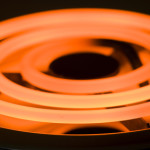- Joined
- Feb 10, 2009
- Messages
- 3,039
You know the drill...But ultimately anything concerning drilling will be either boring or just going round in circles?
You know the drill...But ultimately anything concerning drilling will be either boring or just going round in circles?
Holes like parallel fins can't radiate well so conduction at the source and convection at the ends. Welding extensions on would help best.Before the fins can release heat first it needs to get into them. I suspect that the drilling would reduce the ability of the fins to conduct heat away from the source, and reduce the quantity of heat which the fins could remove/hold, so that whether they then are better worse at releasing it would be irrelevent. Just my seat of the pants 5c worth.
It seems, by the above, copper wins the day, so assuming you can successfully block off the bores,push rod tunnels cam lifters, you should take said barrel to a chrome platers and get it dipped in a copper vat !That's kind of my point. And aluminum transfers heat significantly better than steel (but not as good as copper)

Which Metals Conduct Heat Best? - Metal Supermarkets
Metals conduct heat, called thermal conductivity. It is important to consider in applications with high temperatures. But which metals conduct heat best?www.metalsupermarkets.com
Nope, silver wins the day.It seems, by the above, copper wins the day, so assuming you can successfully block off the bores,push rod tunnels cam lifters, you should take said barrel to a chrome platers and get it dipped in a copper vat !
A lot of replies in a short time.Some great replies gents.
In the "old days" people determined if something worked/didn't work by trying it. It worked or it didn't. Nowadays we have scientific studies that cost millions of dollars to tell us things like "This study proves that if you touch a hot stove it will burn your hand."Some great replies gents. It certainly looking like a thumbs down for the drill addicts !
It was actually Dave Degens who told me, some years ago, not to do it as holes would disturb the air flow and reduce cooling. He may not have been 100% up to speed with the exact science behind it, but it sounds like he was basically right.
Answer is in post #28.Does a hole in a cooling fin increase surface area? Seems to me that it reduces surface area...
Heretic - burn 'imOr flow a coolant thru the holes...
I have known cast iron fins to just fall of the cylinder of old motorcycles, through vibration. What does a hole do to the strength of a fin ? 'Because I can' is never a good reason for doing anything. To me bobbers are shit. Many a good motorcycle has been turned into crap by idiots.I've been around lots of aircraft cylinders and have never seen any fins drilled. I have seen up-horsepower engines of the same displacement go from straight to angle valves with more and larger fins added, especially around the exhaust valves. If there was any advantage to drilled fins the aircraft engine manufactures would have been all over it long ago.
